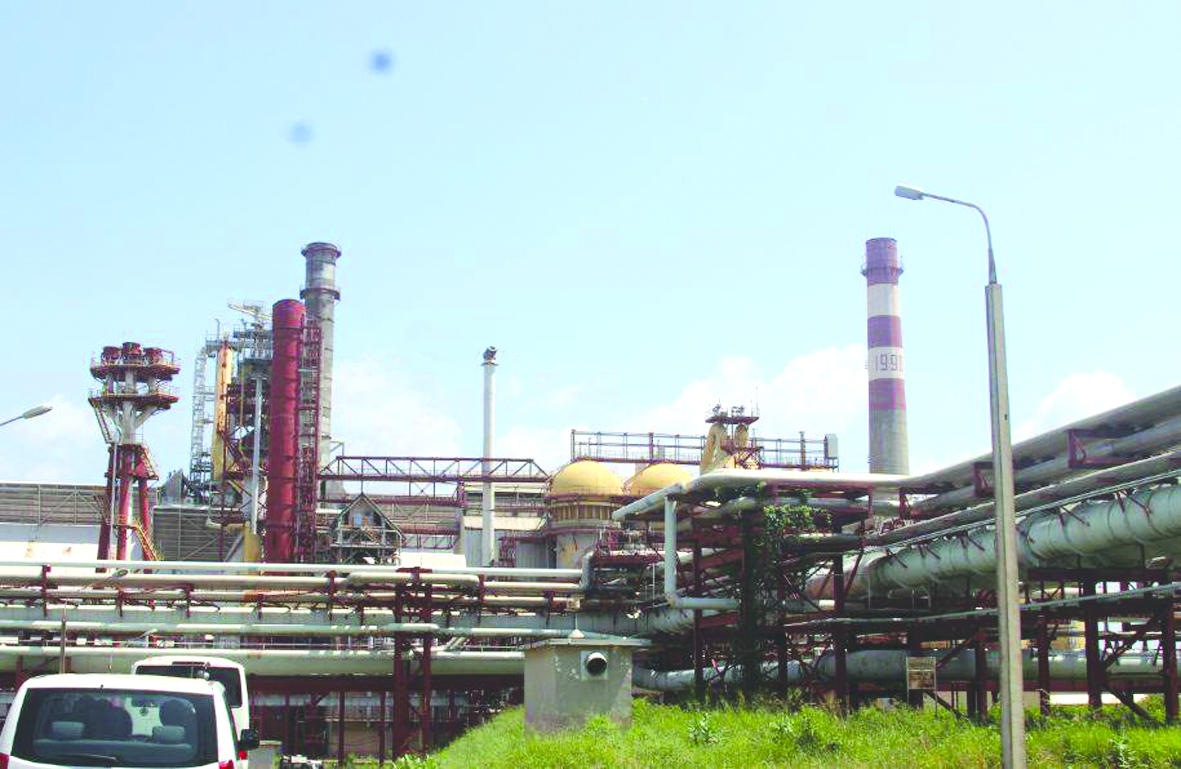The Minister of State for Solid Minerals Development, Mr. Abubakar Bawa-Bwari, said on Thursday that the Federal Government had spent over $10bn on the Ajaokuta Steel Company in the last 35 years.
He also said the government escaped paying damages in excess of $525m to Global Infrastructure Holdings Limited by signing a modified concession agreement with the latter to enable the firm to retain the National Iron Ore Mining Company, Itakpe. The modified seven-year concession agreement was signed on August 1, this year.
NIOMCO was designed to feed Ajaokuta Steel Company with the requisite raw materials to produce steel, but both firms have made little progress.
Bawa-Bwari, who appeared before the House of Representatives Committee on Privatisation and Commercialisation in Abuja, said, “The most important thing is that everybody agrees that Ajaokuta should work. We have spent over $10bn over 35 years and we cannot afford to continue to waste more time.
“This modified agreement is the best option available to government today. This agreement will free us from all the legal issues. We will monitor it and ensure that the GIHL too keeps to its promise that they have turned a new leaf.”
The minister spoke amid protests by steel sector stakeholders, including workers, host communities and the Bureau of Public Enterprises.
Bawa-Bwari said that the present administration signed the agreement to free NIOMCO, Ajaokuta Steel Company and the Delta Steel Company, Ovian-Alaja, from the ‘legal encumbrances’ that had stalled the operations of the steel firms for several years since they were first privatised in 2004.
The minister said that it was the administration of former President Goodluck Jonathan that first initiated the modified agreement with the GIHL in 2013 as part of ‘out of court settlement’ for the government’s breach of the original agreement it signed with the Indians in 2004.
He said that the initial concession was to last 25 years with a provision for “automatic renewal.”
However, the minister said the late President Umaru Yar’Adua reversed the privatisation of NIOMCO in 2008 without meeting the requirements of the clauses built into the agreement.
He added that the GIHL reacted by dragging the government before the Court of Arbitration, further crippling the operations of NIOMCO and other steel firms tied to it.
The minister explained how, acting on legal opinion by the Office of the Attorney-General of the Federation, the Jonathan administration opted for an out of court settlement in the form of a modified concession agreement in 2013.
But he noted that the controversy that surrounded the modified agreement again did not allow for its take-off until the current government acted on it on August 1 this year.
But the Chairman of the committee, Mr. Ahmed Yerima; the Chairman, Sub-committee on Steel, Mr. Gabriel Kolawole, and other lawmakers disagreed with the minister.
For instance, Yerima queried why the BPE was not fully involved in the process.
Some members wondered how the same government that spent over $10bn on Ajaokuta Steel was in a hurry to return to the GIHL just to avoid paying $525m damages.
The BPE, through its acting Director-General, Mr. Vincent Akpotaire, said it had not been fully involved in the privatisation of NIOMCO and Ajaokuta since 2004.
Akpotaire recalled that there was only one meeting where the BPE made proposals to the government, but stressed that the agency was not accorded further invitations.
“The way forward is perhaps to unbundle the various plant lines in Ajaokuta, which can all stand independently on their own as against going for a single core investor again,” he stated.
Akpotaire also said records indicated that NIOMCO and Delta Steel did not find their feet after the first privatisation in 2004 because the GIHL “clearly lacked the capacity” to deliver.
Workers of the steel firms and members of the host communities opposed the latest agreement on account of unresolved issues; one of which was the non-payment of outstanding benefits.
Others were calls for the payment of compensation for lives lost in the host communities during the various protests staged by their youths to oppose the privatisation policy.
The committee said it would have to report its findings to the general House.

 Billionaire Watch2 weeks ago
Billionaire Watch2 weeks ago
 Startups4 weeks ago
Startups4 weeks ago
 News4 weeks ago
News4 weeks ago
 News4 weeks ago
News4 weeks ago
 Bitcoin4 weeks ago
Bitcoin4 weeks ago
 Naira4 weeks ago
Naira4 weeks ago
 Forex3 weeks ago
Forex3 weeks ago
 Treasury Bills4 weeks ago
Treasury Bills4 weeks ago

























